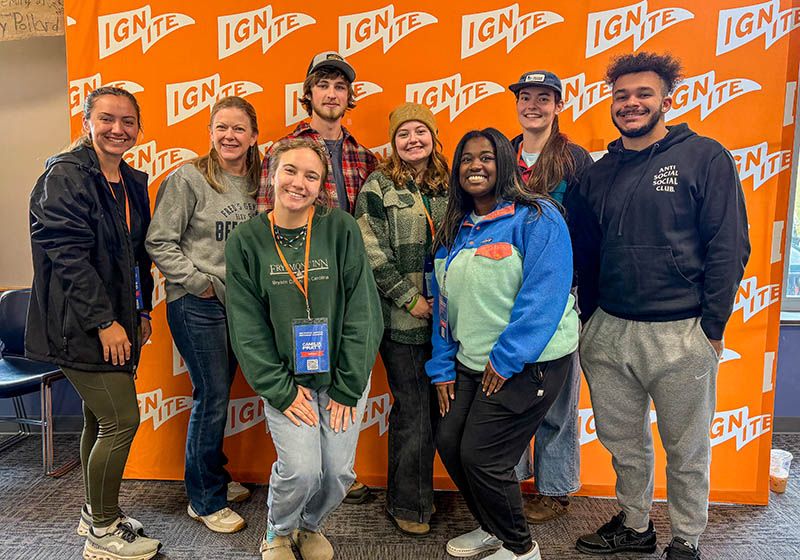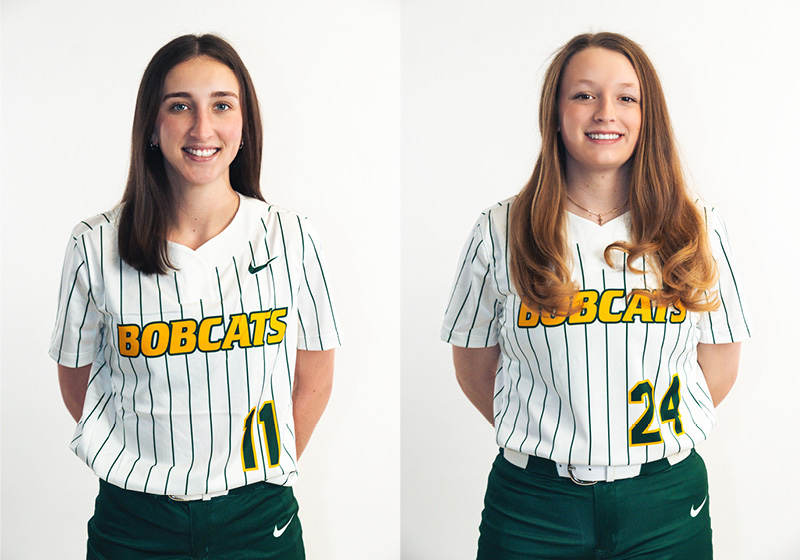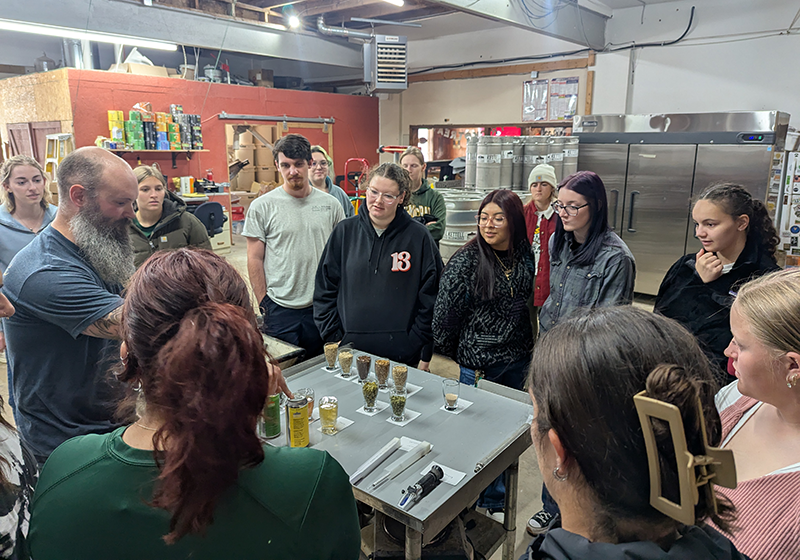
What does a career in the cycling industry look like?
Alumni TJ Trotter and Cody Phillips discuss their journeys pursuing their passionFor 2015 graduates Cody Phillips and TJ Trotter, working in the cycling industry was a dream they had stoked the flames of for years. Both Phillips and Trotter had loved the sport since they were young and had competed on the cycling team while at Lees-McRae. While their personal and athletic interest in the sport created a desire to enter the cycling industry following graduation, what they learned about the industry in the classroom gave them the extra edge they needed to confidently enter the professional world of cycling and find success in the field.
Both Phillips and Trotter majored in Business Administration and minored in Cycling Studies, an academic combination they agree helped them prepare for the industry. Today, Phillips works for Wilderness Trail Bikes in Original Equipment Manufacturer (OEM) sales, where he collaborates directly with bicycle brands to sell them OEM parts that then go into their products.
“In my day-to-day, it’s basically large-batch sales with an account management emphasis. I have maybe twenty or thirty accounts across the U.S. with brands, and I work with them year-in and year-out to develop new products they want, negotiate pricing, solve issues, and sell products from our factories around the world directly to their assembly factories,” Phillips said. “It’s less sales-y in the sense of a door-to-door salesperson, and it’s more about working with accounts and building relationships, and marketing, which was my concentration in college.”
Throughout the Cycling Studies program each student is required to complete an internship in a relevant field. For his internship, Phillips marketed himself as a cyclist and competitive racer and created a personal brand that he could leverage with cycling companies to market their products and receive business endorsements at races. He said the skills and knowledge he gained through this experience directly translated to the “real world” when he landed his first post-graduate gig running social media and doing marketing for an international cycling company.
“That was a direct result of me already knowing how to do social media because I was doing it for myself as a student-athlete and knowing how to manage athletes and sponsorships because I had been on the other end of that,” Phillips said. “The internship made me realize that what I was doing was a useful professional skill. I was doing it because that’s what you need to do as an athlete to have sponsors, but the internship component showed me, ‘wow, this is also something I can put on my resume when I apply for jobs.’”
Like Phillips, Trotter has worked in the cycling industry in the years following graduation, but he began his journey in the industry working in bike shops at the age of 16. From that first experience in a shop, he was hooked and became determined to build a career that revolved around that passion. For the past few years Trotter has been doing just that, working in product management for PNW Components, an after-market cycling components retailer.
During the four and a half years he has been with the company Trotter has worn many hats, from customer service, to sales, to marketing, but he said he feels particularly fortunate to be in his current role in product management. According to Trotter, the position is fairly niche, with a given company typically only employing one to two product managers. In this role Trotter develops and designs the after-market bike components that he once sold as a 16-year-old working in his local bike shop.
“I’m coming up with ideas, I’m filling out thorough briefs that truly analyze the products that we ideated, and then I’m ordering competitor samples and learning about that product. It could be a handlebar, a peddle, a grip,” Trotter said. “Any kind of bike product you can imagine, we figure out a way to offer value to our customer, whether it’s by having a better price point or offering a better technology.”
The passion for cycling was key for Trotter and Phillips to reach their goals, but it was only one part of the equation. The background knowledge and understanding of the current state of the industry, as well as the historical perspective on cycling and bikes that they gained through their time in the Cycling Studies program, gave them the skills and expertise needed to be successful in these roles.
“Coming into the minor and thinking about the bike industry, you think about sales and marketing, but there’s so much more that goes on in the bicycle industry. There’s industrial design, there’s engineering, there’s product development, there’s project management,” Trotter said. “Having the business major helped me gain a general business basis, and then having that minor in Cycling Studies helped me learn more about those kinds of opportunities in the cycling industry specifically. The business major was a really solid outline for a business career, and then the minor helped fill out that outline.”
Whether it was diving into bike advocacy in class, learning how to manage a cycling race on the trail, or traveling to Washington D.C. to attend the National Bike Summit and advocate for cycling infrastructure and safety to a room of government representatives, both Trotter and Phillips agree that the Cycling Studies program expanded their view of the industry far beyond their initial understanding. Now that the alumni have been working professionally in the field for more than five years, they still hearken back to the skills, lessons, and relationships they fostered throughout the program. They also encourage those who have dreams of turning their passion for cycling into a career to take advantage of this rich opportunity.
“Take every opportunity you can that the minor presents you. Seek out internships in the field you think you might want to work in, because the cycling industry is very small, it’s a pretty close-knit community, and everyone talks,” Phillips said. “Utilize the internships and the connections that the cycling team and the minor have to offer. Between Tim [Hall] and his connections with past racers, and Ted [Silver] and his connections with past students, there are a lot of opportunities in almost every avenue to get involved and get in touch with the right people.”


